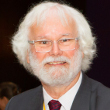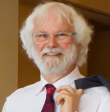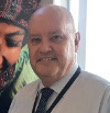Contact us if you would like to discuss doing research with our institute. We are open to collaborating on new projects related to our mission.
Examples of current projects include:

Ranking nations on economic, environmental and social criteria
A study led by Harry Bergsteiner re-examined the competitiveness of 104 countries on 29 economic, social and environmental indicators.
We found that most country competitiveness rankings such as the World Economic Forum’s Global Competitiveness Report are methodologically flawed, ideologically biased, dismissive of environmental and social performance, and hence grossly misleading.
When these problems are corrected, the US, the UK and to a lesser extent Canada, rank much lower on country competitiveness and the high performers are predominantly north-European. We attribute neoliberal thinking to the differences between high-performing and low-performing western countries.
Based on the evidence, we conclude that policy makers and practitioners seeking guidance on how to improve their country’s economic, environmental and social performance should be looking to the high-performing north-European social-market economies.
Read the full paper here for free
Be sure to forward the link to interested others you may know.
Harald Bergsteiner, Gayle C. Avery, 2018
Misleading Country Rankings Perpetuate Destructive Business Practices
Journal of Business Ethics
Open Access: https://doi.org/10.1007/s10551-018-3805-6

Sufficiency Thinking
Gayle Avery and Harry Bergsteiner edited a book on sufficiency thinking with chapters written by eminent Thai researchers.
About two decades ago, the previous King of Thailand proposed that all institutions in his country should follow Sufficiency Economy principles in running their businesses or government departments. Although the Sufficiency Economy Philosophy (SEP) is derived from the Buddhist middle way philosophy, there is a large overlap between sustainable leadership principles and the SEP. Thailand is leading the way in adopting sustainable development principles across all sectors from education, to prisons from agriculture to private businesses.
This is the first systematic account of the powerful decision-making framework which is being applied across all areas of life in Thailand, to build a fair, resilient and sustainable economy and society.
The Thai model of sufficiency thinking aims to transform the mindset of a whole population to achieve the seemingly impossible: enriching everyone’s lives in a truly sustainable way. Innovative management practices developed by King Bhumibol Adulyadej of Thailand have been applied across Thailand in agriculture, education, business, government and community organisations for over two decades.
Is Thailand unique in having discovered the holy grail of a more responsible form of capitalism? No, it is not, but it is the first country whose government has adopted this kind of thinking as national policy.
See a picture of some of the research team
Read more on the project
View details on the book and how to purchase
Read about the book launch event in Bangkok
…we obviously need to revise dramatically our thinking about the outlines of a just economy and a decent society in which everyone can lead dignified lives. Sufficiency Thinking provides creative approaches to this quandary and this important volume is a brilliant addition to the growing literature critical of mainstream business-as-usual ideology.

Rethinking stock exchanges for the long term
This project addresses a fatal flaw in the equity markets.
In effect, there is a fundamental clash between the objectives/needs of stock exchanges on the one hand (high-velocity, high-volume trading), and investors and investees on the other (long-term, intelligent, non-perilous capital).
For companies to be able to think and act long-term, they need access to long-term money. Current stock exchanges do not provide this. The proposal is for a radical new long-term equity investment vehicle that meets industry needs.

Australian honeybee companies
This project aims to identify 10 Australian “Honeybee” organisations and then examine their practices in detail.
The outcome will be a book of case studies showcasing the many different ways in which sustainable leadership principles can be implemented.
The first part of this project, funded by Macquarie Graduate School of Management, involves poring over annual reports, accreditation data, and media articles. The second stage will include interviews with executives in the chosen organisations.
Interviews with CEOs doing remarkable things
ISL is interviewing CEOs who are beating the odds in various ways by adopting sustainable practices.

Dr David Cooke from Konica-Minolta has turned his company around on every measure by focusing on the UN’s Sustainable Development Goals. In particular, he has given his company the purpose of abolishing human slavery (SDG 8.5) and has united the employees and other stakeholders behind this high-level purpose.
The interview is published in Strategy & Leadership, 45(3), 38-44.

Dr Thep Himathongkam is transforming diabetes treatment in Thailand, overcoming cultural, social and economic barriers in setting up the world-renowned Theptarin Hospital in Bangkok.
The interview is published in Strategy & Leadership, 44(3), 40-46.
